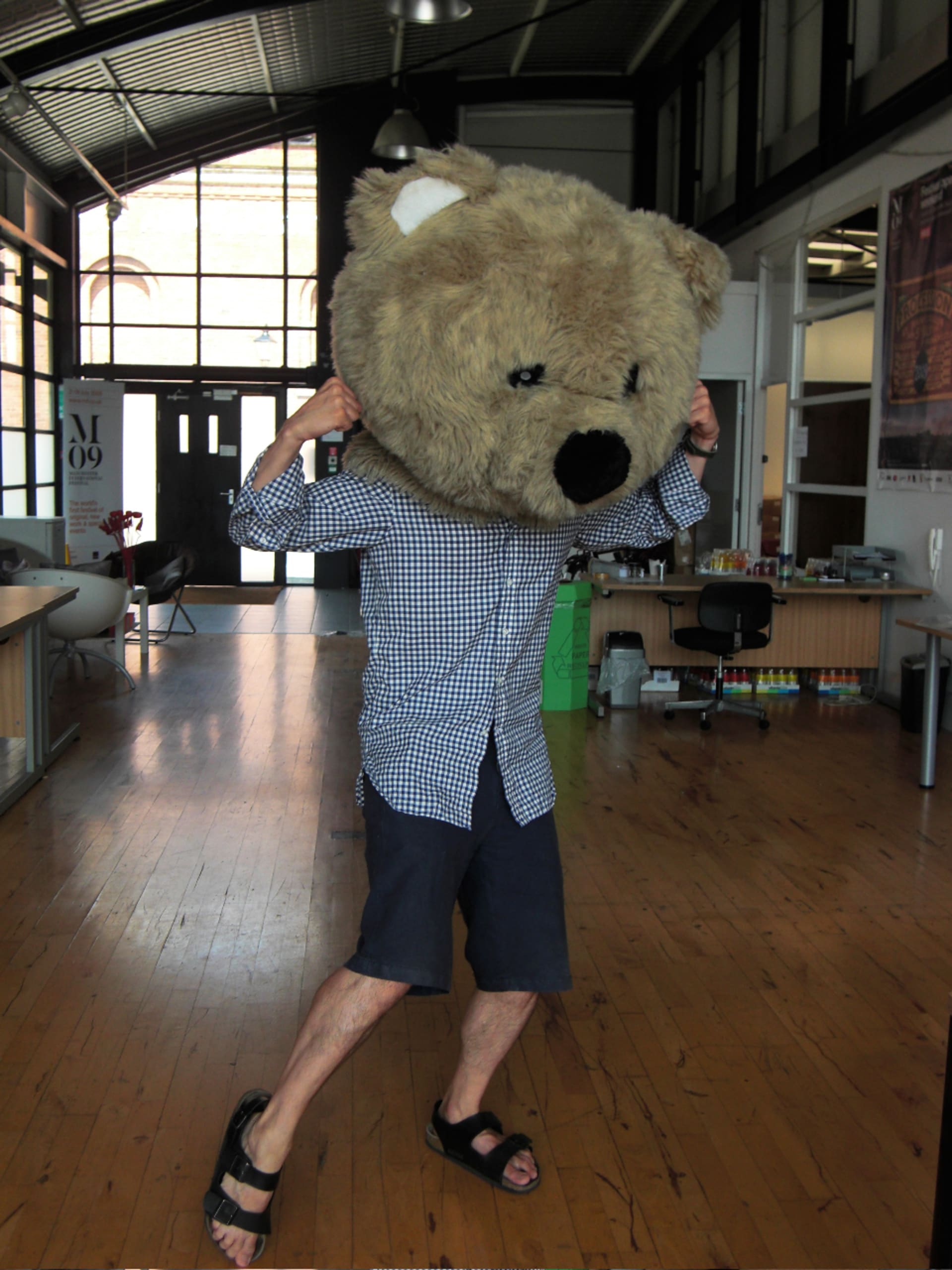The article you’re reading comes from our archive. Please keep in mind that it might not fully reflect current views or trends.

72 hours: DMGDR – Part four, Jeremy Deller
Depeche Mode have built up one of the most musically influential and obsessive fan bases in the world, particularly in Berlin and the former East Germany. Together with filmmaker Nick Abrahams, Jeremy Deller made The Posters Came From The Walls, a film documenting the more eccentric aspects of Depeche Mode fanculture worldwide. This is the fourth in a six-part series of conversations with the fans. Click here for more.
Saturday 2:15 pm, Dresden: Jeremy Deller – Artist, Filmmaker and Winner of Turner Prize, 2006
I wouldn’t argue that Depeche Mode fans are any more obsessive in Germany than in the former Eastern Bloc countries. As a general matter, there was a level and intensity to the fandom in the entire East that was different than in other places around the world, like with the Granzow family from Thuringia who dress up their kids, Dave and David, like Depeche Mode members and reenact videos and famous band photos. You see, we weren’t interested in the people that already had massive collections of pins and obscure albums and whatnot, but rather those that put a lot of time and effort into representing their unique devotion to the band. And, perhaps most importantly, those that had absolutely nothing. It took us a little while to figure out the kind of people that were interesting for interviews and those that weren’t. Actually, if we’d had the chance to do the film again, we’d probably focus exclusively on the East. Depeche Mode fandom under and immediately after Communist rule is enough of a conceptual framework, I think.
The reaction to the film worldwide was almost entirely positive, and in Germany people seemed to be very into it. But let’s be honest here: German fans take the band very seriously, and some weren’t so happy about the inclusion of extreme cases like the Granzows, although these are the people who made for a good film. We wanted to show people who’ve done something crazy with the band and their image. Ultimately, the film doesn’t have a specific time or place-based narrative. A lot of it bounces back and forth between America and Russia, which adds a kind-of Cold War tinge to it. Honestly, we didn’t hear any negative reaction to the film, although I’d heard second hand of people complaining that the band weren’t involved, but that was the whole point. If you want to watch the band, you can pick up any number of DVDs that they churn out. We also weren’t allowed to get near them while we were making the film, even though Daniel Miller was our biggest fan, so to speak. Mute commissioned the whole thing. Apparently, the band didn’t like the film at all, which is something I find curious. It’s unclear why they don’t like it—it only makes them look good, really.
In the past I’ve worked with the concept of reenactment and for me, a Depeche Mode concert comes across as a specific kind of ritual. And for adults in their forties, going to concerts can also be a way to “reenact” their youth. We encountered many different ways people made Depeche Mode their life. Some obviously made it their identity with how they dressed and styled themselves, and others hid their obsession by not dressing the part and only collecting ephemera. The former is the way to have a bit more fun with it, I suppose. Personally, I like the band. I’ve been to a number of concerts, although I don’t listen to them so much anymore. They’re pretty underrated in Britain because for some reason in the mid-late eighties they were just kind of written off as a pop band. It’s not like Germany where there are Depeche Mode parties in every city in the country every week.
This text first appeared in Electronic Beats Magazine N° 32 (Winter 2012). Photo: Luci Lux
